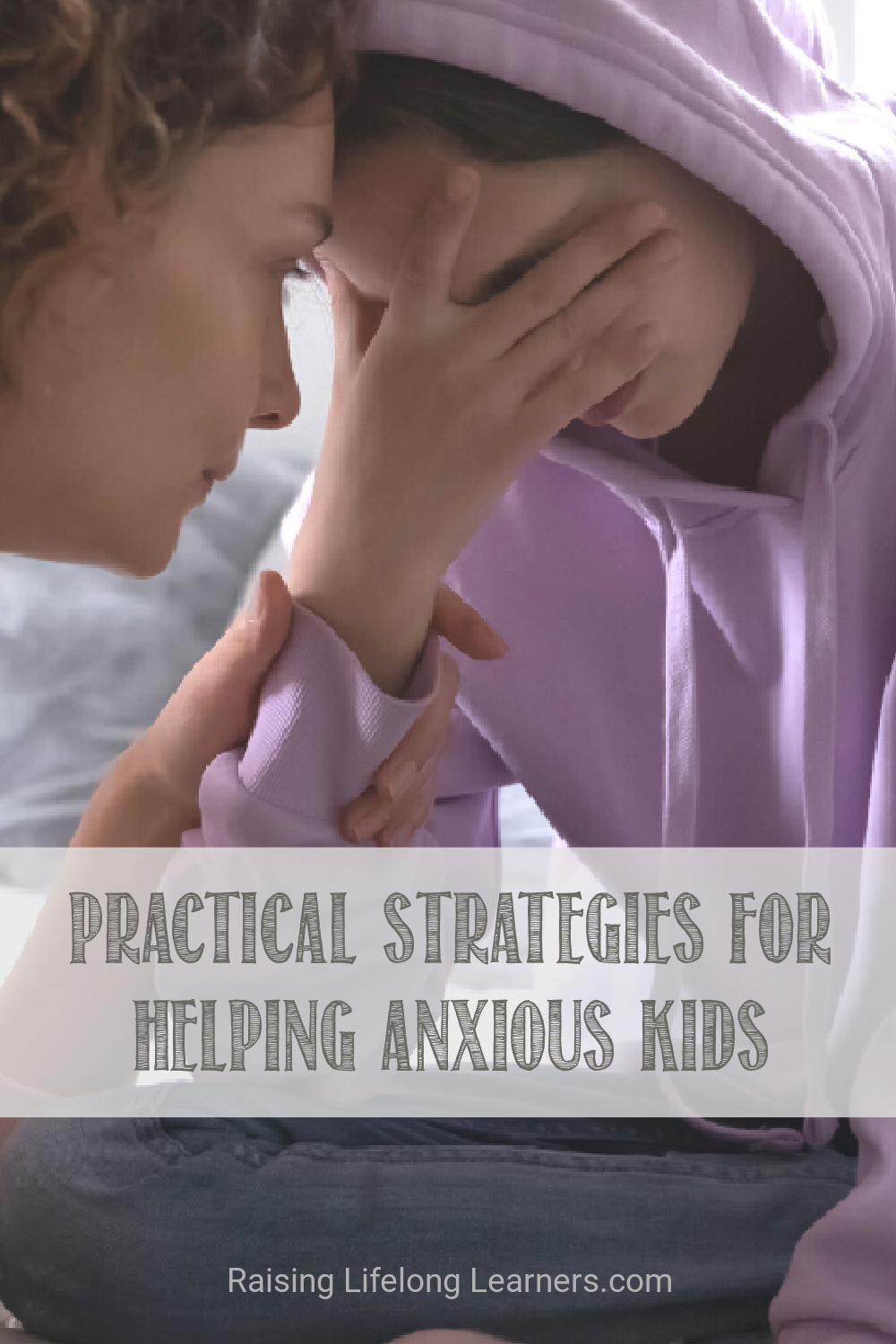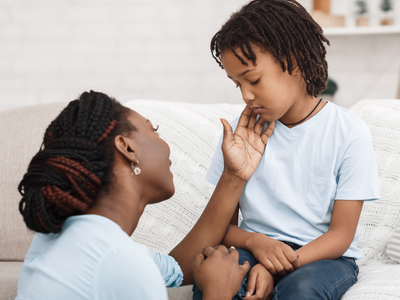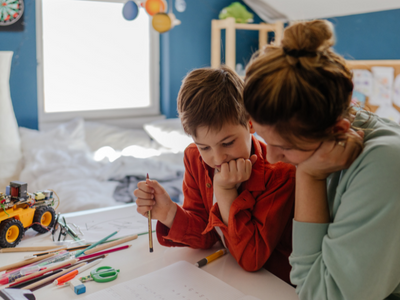Practical Strategies For Helping Anxious Kids
This is the final episode in our series, all about anxiety. Today we’re going to talk about strategies and tools we can use to help our children cope. These are practical takeaways we can use to help our kids manage their anxiety.

We want our kids to know that there’s nothing wrong with them. They’re not broken. They’re not bad. Their brains are just wired in a different way.
It’s Not Your Fault and You Are Not Alone
Something that can help our children is to make sure they know that they’re not alone. They’re not broken, they’re not wrong, or bad because they worry so much.
It can be overwhelming to try to figure out your kiddos, anxiety, or what’s going to help. As you are figuring it out, the very first thing you can do to help your child is to reinforce that they are not doing anything wrong. We can help them know that their brains are wired in a way that makes them more sensitive to the things going on around them and the possibilities of things going wrong. This can give them a new kind of lens to view the world through.
We want them to feel confident in knowing that it is not their fault and they are not alone.
Anxiety Is Different For Everyone
I want you to remember that anxiety looks different in all kids. It looks different in all adults. What might work for one may not work for another, and what works today may not work tomorrow. Your overall goal is to build a tool box of strategies that you can draw from at any given time.
For example, our Anxiety Toolkit is designed to help you with an assortment of practical exercises and coping strategies right at your fingertips. Sometimes half the battle is being in the midst of it and anxiety has taken over. It can leave you not knowing what to do and just feeling overwhelmed. This card deck is a physical representation of a whole bunch of different things you can try to see what works.
What works once, may not work again and that’s OK. It doesn’t mean you’re failing. It doesn’t mean your child is failing. It doesn’t mean anything’s wrong with either of you. It just means you need a different approach for awhile.
I wish I could go back way back to the beginning when my oldest was young and tell myself that we will manage each new kind of setback as it comes and not to worry.
Your Child Needs You To Validate Their Experience
Your kiddo wants to listen to you, but their brain does not let that happen. They want to not worry, but their brain doesn’t allow them to not worry. Telling them not to worry and that it’s going to be okay is negating their actual feelings. While they’re anxious, when they’re coming to you with their worries, you want to make sure that you’re taking some time to validate them and help them see that their feelings are are valid.
S.T.O.P. Anxiety: Practical Strategies For Helping Our Anxious Kids
We use the word “Stop” as an acronym for what to do when anxiety rears its ugly head.
- S – Stop, pause and take a breath
- T – Talk with them and validate their experience
- O – Options, determine what possible solutions are available
- P – Pass it off, by empowering your child to use the tools to help themselves
You’ll find a more detailed discussion of how to use STOP in your home in this week’s podcast episode, or download the S.T.O.P. guide below.
Raising Lifelong Learners Podcast #161: Practical Strategies For Helping Anxious Kids
This episode continues our series, all about managing anxiety in gifted and twice exceptional children. Today, Colleen shares practical strategies for helping our anxious kids.
Links And Resources From Today’s Show:
- SPONSOR: CTCMath
- Anxiety vs. Stress vs. Perfectionism: Helping Our Children Cope
- Anxiety In Children: Physical, Emotional, and Behavioral Symptoms
- Great Gifts for Children with Anxiety
- RLL #55: Helping Your Child Manage Perfectionism
- RLL #52: Overcoming Perfectionism and Finding Joy in Homeschooling
- The Best Advice I Can Give You: Become A Student Of Your Child
- The Anxious Parent of the Anxious Child | Your Anxiety is Not Identical
- RLL #86: All About Anxiety with Dr. Dan Peters
- Anxiety Toolkit Resources
Leave a Rating or Review
Doing so helps me get the word out about the podcast. iTunes bases their search results on positive ratings, so it really does help — and it’s easy!
-
- Click THIS link to go to the podcast main page.
- Click on View in iTunes under the podcast cover artwork.
- Once your iTunes has launched and you are on the podcast page, click on Ratings and Review under the podcast name. There you can leave either or both! Thanks so much.















